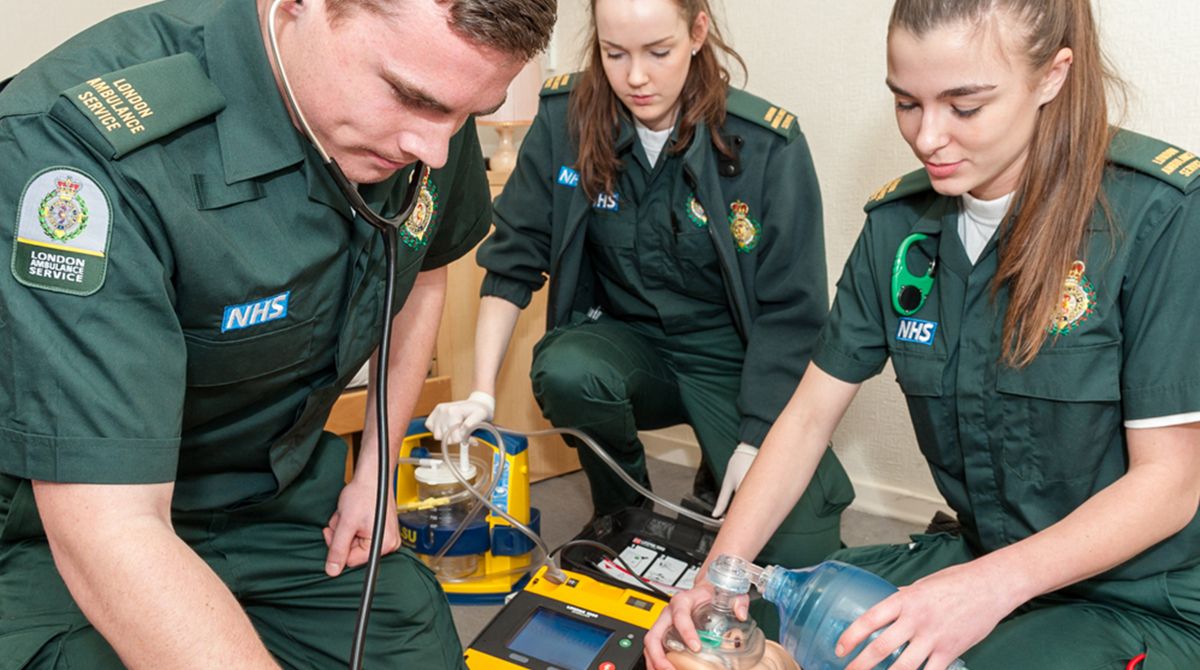Strong leadership of allied health professions key to transforming NHS, according to study by Kingston University and St George's, University of London
Posted Wednesday 25 July 2018

Ensuring the 14 allied health professions - including occupational therapy, physiotherapy and paramedic science - have robust, strategic-level leadership in place is key to unlocking their potential to transform patient care across the NHS, new research by Kingston University and St George's, University of London, has revealed.
Deborah Harding and Elizabeth Treadwell from the Faculty of Health, Social Care and Education, run jointly by Kingston and St George's, were commissioned by healthcare regulator NHS Improvement to examine current leadership of the allied health professions (AHPs) across NHS provider Trusts in England.
Ms Harding, a registered speech and language therapist and Director of Workforce Development in the School of Allied Health, Midwifery and Social Care at Kingston and St Georges, said they found enormous variation in how leadership of the professions was configured - which had the potential to significantly affect the workforce's effectiveness
"We found 41 different job titles across the 43 AHP leadership job roles in Trusts in England. This variation can lead to confusion and makes it very difficult to find the go-to person leading AHPs in a Trust," Ms Harding explained.
"Our research showed that where the role of AHP leader was graded at a higher level, with more strategic responsibility and fewer steps between it and the board, the contribution of the AHP workforce was more visible. This enabled Trust boards to better use the workforce to address transformation challenges in the NHS," she said.
Where trusts had invested in AHP leadership, there was evidence that the AHP workforce was more engaged in improvement work for patient benefit, Ms Harding added. "In trusts that haven't invested in AHP leadership in the same way, it's more difficult to spot what contribution the allied health professions are making."
AHPs make up the third largest workforce in the NHS. They cover a diverse range of 14 professions - distinct from nursing, medicine and pharmacy - and include physiotherapists, occupational therapists, speech and language therapists, radiographers and paramedics and extend to art and drama therapists and chiropodists. Allied health professionals work in health care teams to make the system function by providing a range of diagnostic, technical, therapeutic and direct patient care.
Dr Joanne Fillingham, Clinical Director for Allied Health Professions at NHS Improvement, said with the right leadership, the workforce could be key to addressing many of the challenges currently facing the NHS.
"Leadership matters. AHPs have the skills and scope to transform care across systems, notably in areas such as patient flow, urgent and emergency care and length of stay," Dr Fillingham said. "However, if we are to maximise their collective potential for quality improvement, we need to ensure that leadership arrangements within Trusts reflect the value they bring to the table."
The study by Ms Harding, Elizabeth Treadwell and colleagues from the Improvement and Implementation Science Research Group at Kingston and St George's was conducted between November 2017 and March this year. They surveyed all NHS Trusts in England and interviewed post holders in some of the most senior AHP leadership positions. Ms Harding said the findings highlighted the importance of AHPs joining forces to maximise their impact.
"The need to tap in to the potential of AHPs to transform healthcare has never been greater - and strong and effective leadership is vital to that," Ms Harding explained. "This research highlights the need for AHPs to adopt a collective voice to foreground what they do. By mapping the contribution of AHPs to Trust and health and care system priorities, we can start to better demonstrate the value of these professions."
- Find out more about studying for an undergraduate degree in the Faculty of Health, Social Care and Education.
Contact us
General enquiries:
Journalists only:
- Communications team
Tel: +44 (0)20 8417 3034
Email us



